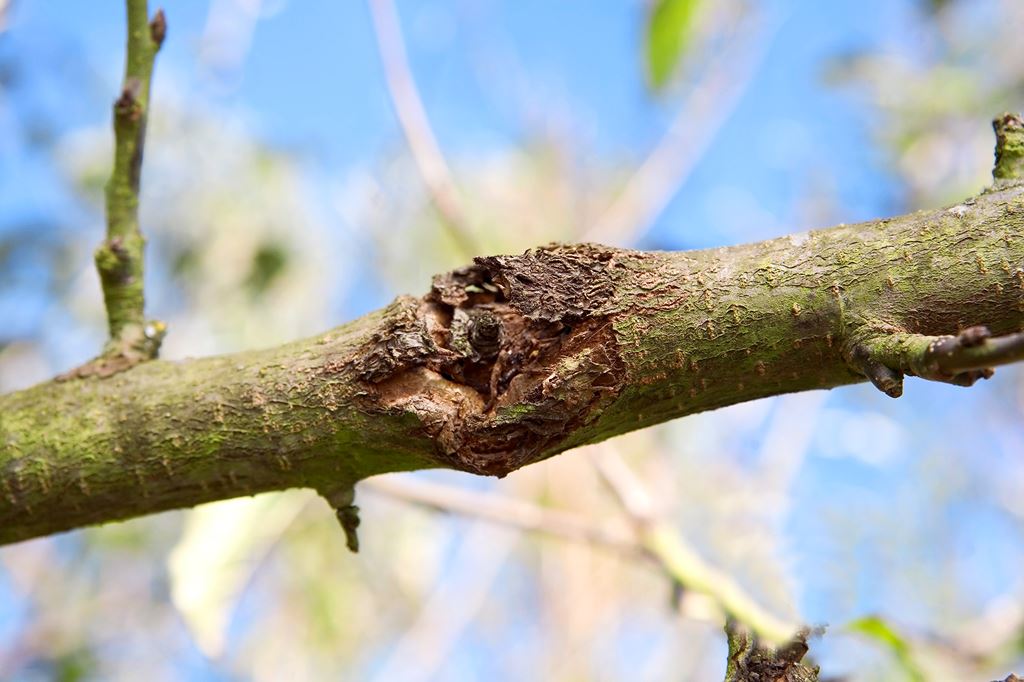
Important steps have been made to address the challenges caused by apple canker, as two new effective fungicides are identified and the latest integrated pest management (IPM) research shows promising results.
Caused by the fungus Neonectria ditissima, it is one of the most important diseases of apple and pea.
It can cause cankers and dieback of young shoots, as well as fruit rot that can result in losses as high as ten per cent or more in stored fruit.
Fungicides which are effective against canker, particularly for use within the growing season, are currently limited.
Two research projects, funded by AHDB Horticulture, are helping the fruit industry address the challenges caused by apple canker.
In a two-year trial examining control of Neonectria fruit rot, a range of experimental fungicides, a biofungicide and several alternative chemical treatments were tested for effectiveness.
During the trials, fungicides Delan Pro and Syllit 400SC were found to be effective at reducing the incidence of fruit rot.
While fungicides are still needed by growers to tackle apple canker, with more products being withdrawn from the market, there is a clear need to examine effective longer-term IPM programmes.
'Systematic approach'
A five-year IPM study, commissioned by AHDB Horticulture, is examining how apple canker spreads.
The project aims to identify a systematic approach which reduces losses during tree establishment by targeting infection at the propagation phase and improving efficacy of orchard control with novel and targeted applications.
Mark Holden, from Adrian Scripps Ltd and industry representative of the project, said: “Losses of trees due to canker have risen significantly over the last 10 years due to more intensive tree planting, particularly with more susceptible varieties such as Gala, Braeburn, Kanzi & Jazz.
“Apple canker is easily the most economically damaging disease in our orchards so any research towards control in the future is of great benefit.
“The main issue is the lack of systemic chemical products in the growing season which are effective for canker control so it is encouraging that some new chemistry is coming through that will add to the integrated approach to tackle this disease.
“It is hoped that, after the registration process is completed for these new products, the label requirements are not too restrictive.”
Scott Raffle, knowledge exchange manager at AHDB, said: “We commissioned these projects in response to the concerns raised by the tree fruit industry about apple canker. We’re pleased these projects have generated tangible results that will have real impact in orchards and look forward to sharing further results with growers as the IPM project progresses.”
